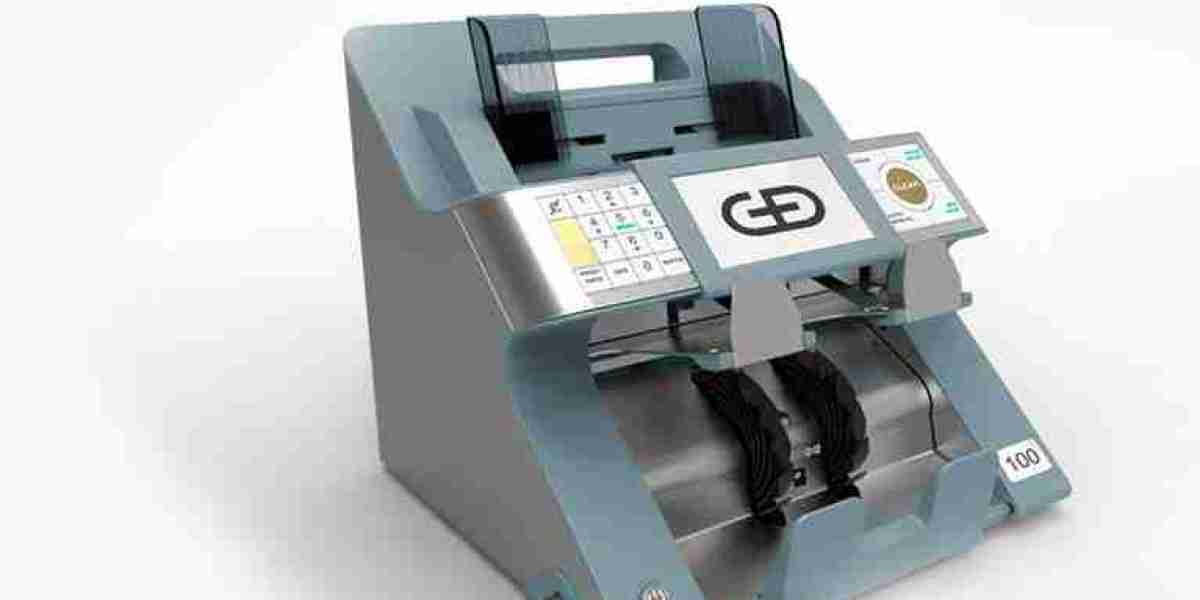Introduction
The currency sorter market plays a crucial role in the financial ecosystem by automating the processes of currency sorting, counting, and validating, which are vital for organizations such as banks, retailers, and cash-in-transit companies. As this market grows, it becomes essential to assess the competitive landscape, especially the strengths, weaknesses, opportunities, and threats (SWOT) of major vendors in the space. A comprehensive SWOT analysis of leading players helps stakeholders understand the key factors that influence the market dynamics, and it provides insights into how these vendors are positioning themselves for future growth.
Key Vendors in the Currency Sorter Market
Before diving into the SWOT analysis, let's identify some of the major players in the currency sorter market:
Diebold Nixdorf, Inc.
Glory Global Solutions
Giesecke+Devrient
CPI Group (Currency Processing Solutions)
NCR Corporation
Hitachi-Omron Terminal Solutions
Maxsell
Laurel Bank Machines
Toshiba
Kisan Electronics
Each of these companies has its own unique strengths, strategies, and approaches to the market. Let's take a closer look at the SWOT analysis for some of these key vendors.
SWOT Analysis of Major Vendors
1. Diebold Nixdorf, Inc.
Strengths:
Strong Brand Recognition: Diebold Nixdorf is a well-established brand with a significant presence in the global banking and retail sectors, providing robust solutions for cash handling and self-service kiosks.
Advanced Technology: Diebold Nixdorf is known for its innovation in integrating currency sorters with other automated systems, such as ATMs and self-checkout machines, offering seamless multi-functionality.
Global Reach: With operations across North America, Europe, and Asia, Diebold Nixdorf has a well-established global distribution network.
Weaknesses:
High Product Costs: The company’s premium products can be cost-prohibitive for smaller businesses, limiting its market penetration in cost-sensitive regions or industries.
Complex Solutions: Some users may find Diebold Nixdorf's solutions overly complex, especially in terms of integration and maintenance.
Opportunities:
Expansion into Emerging Markets: As the adoption of automation in emerging economies grows, Diebold Nixdorf can tap into these new markets by offering cost-effective currency sorting solutions.
Partnerships and Collaborations: The company has opportunities to form strategic partnerships with banks, fintech companies, and retailers to expand its customer base and enhance its product offerings.
Threats:
Intense Competition: Competition from both established players and new entrants, offering similar solutions at lower prices, poses a threat to market share.
Economic Downturns: Economic recessions or financial crises may lead to reduced capital investment in currency sorting technologies, affecting demand.
2. Glory Global Solutions
Strengths:
Market Leader: Glory Global Solutions is recognized as one of the leading providers of currency sorting solutions worldwide, offering innovative and reliable products.
Comprehensive Product Portfolio: The company provides a wide range of currency handling solutions, from simple coin sorters to advanced currency recyclers and self-service systems.
Robust After-Sales Support: Glory Global has built a reputation for providing excellent after-sales service, including maintenance and support, which strengthens customer loyalty.
Weaknesses:
High Cost of Ownership: The advanced technology and features of Glory’s machines come at a high price point, making it less accessible for small and mid-sized enterprises.
Dependence on Mature Markets: Glory has a heavy reliance on mature markets like North America and Europe, limiting growth potential in emerging markets.
Opportunities:
Technological Advancements: The company can leverage its strong R&D capabilities to introduce new technologies, such as AI-powered counterfeit detection and integrated cash management solutions.
Government Contracts: With increasing global regulations on currency handling, Glory has the opportunity to secure government contracts, especially in cash-heavy economies.
Threats:
Competition from Low-Cost Providers: The emergence of low-cost alternatives and local manufacturers in Asia-Pacific and other regions presents a challenge to Glory’s premium pricing model.
Currency Depreciation Risks: As a company dealing with international clients, Glory faces the risk of fluctuating currency exchange rates affecting profitability.
3. Giesecke+Devrient
Strengths:
Strong Technological Capabilities: Giesecke+Devrient is a key player in both the currency handling and security solutions space. Its innovative designs for counterfeit detection and bill validation give it a competitive edge.
Global Network: With operations in over 30 countries, Giesecke+Devrient has a significant international footprint, enabling it to reach diverse markets.
Weaknesses:
Limited Market Penetration in Retail: While Giesecke+Devrient has a strong presence in the banking sector, its footprint in the retail and small business segments remains relatively underdeveloped.
Expensive Technology: The high-end features of Giesecke+Devrient’s machines often come with a hefty price tag, which may be a barrier to entry for cost-conscious customers.
Opportunities:
Expansion into New Vertical Markets: The company can increase its market share by targeting the retail and cash-in-transit sectors more aggressively, diversifying its customer base.
Focus on Emerging Markets: With rapid urbanization and increasing automation in emerging economies, Giesecke+Devrient can strengthen its position by focusing on these regions.
Threats:
Changing Regulations: The regulatory environment in the currency handling market is constantly evolving. Any significant changes in anti-money laundering or counterfeit detection regulations could pose a challenge for Giesecke+Devrient.
Intensified Competition: As competition grows in the currency sorting sector, especially from Asia-based manufacturers, the company may face pressure to reduce costs while maintaining product quality.
4. NCR Corporation
Strengths:
Diverse Product Offerings: NCR is known for providing a wide range of automated solutions, including self-service kiosks, ATMs, and currency sorters. This diverse portfolio allows the company to cater to various sectors, including banking, retail, and hospitality.
Strong Customer Relationships: NCR has established long-term relationships with leading banks, retailers, and government agencies, providing strong customer loyalty.
Weaknesses:
Limited Focus on Currency Handling: While NCR offers currency sorting solutions, it is not as specialized as other vendors like Glory Global or Diebold Nixdorf, which could limit its growth in the currency sorter niche.
Service Complexity: NCR’s wide-ranging solutions sometimes make integration and servicing more complex, leading to longer installation and maintenance times.
Opportunities:
Cross-Selling Opportunities: Given NCR’s broad portfolio of products, the company can cross-sell its currency sorting machines to existing customers using other NCR services, thus expanding its reach.
Adoption of New Technologies: NCR has the opportunity to integrate AI, machine learning, and IoT into its currency sorting solutions, increasing efficiency and providing new revenue streams.
Threats:
Market Saturation: The currency sorting market, particularly in developed regions, is reaching maturity. NCR may face challenges in gaining significant market share as competition intensifies.
Cybersecurity Risks: As NCR increasingly integrates digital solutions into its currency sorters, the risk of cybersecurity breaches could threaten both its reputation and regulatory compliance.
Conclusion
The currency sorter market is characterized by intense competition, driven by vendors like Diebold Nixdorf, Glory Global Solutions, Giesecke+Devrient, and NCR Corporation. Each of these vendors has unique strengths, weaknesses, opportunities, and threats that shape their positioning in the market. While the demand for advanced currency handling solutions continues to rise, vendors must navigate challenges such as competition from low-cost providers, the need for continuous innovation, and changing regulatory landscapes.




